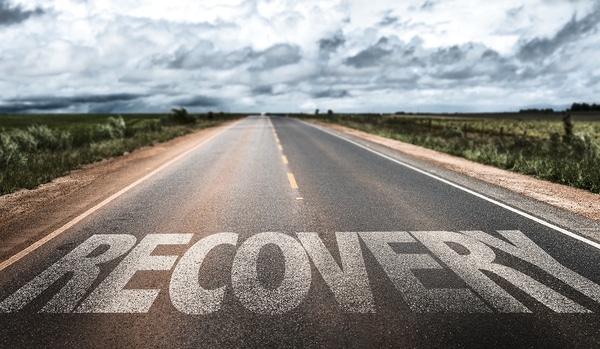
When you take the first step on the road to recovery, it is natural to wonder how long the journey will take.
It has been said that miracles come in two forms. The first type is instantaneous, while the second is process-oriented. The miracle of recovery falls into the latter category, as it involves a continual process. There is no need to be disheartened by that thought, however. Life itself is a process, and like life, the recovery process unfolds at its own pace and in its own time.
Recovering or Recovered?
Looking back on your personal circumstances, you can likely see that there were sequential steps that led you to your addiction over the course of time. In the same way, there are sequential steps that will free you from your addiction now.
You may have heard people who have been through drug and alcohol treatment programs referring to themselves as “recovering” addicts, indicating their acknowledgment that recovery is an ongoing process and that relapse is possible. On the other hand, some former addicts say they have “recovered,” as though the process is over once they have stopped abusing drugs or alcohol.
How you choose to refer to the state of your recovery is your own personal choice. What’s important is that you acknowledge in your heart and mind that you must make a conscious choice every day not to fall back into patterns of addictive behavior. The good news is that, over time, it will become easier to make that choice each day.
Understanding the Addiction Recovery Process
Unlike other goals you may set that have definite endpoints, addiction recovery requires you to think about goal achievement in a different way. PsychCentral’s “How Long Does Addiction Recovery Take?” has this to say:
“Some feel the only way to instill hope for recovery is to define a specific endpoint at which patients can consider themselves fully recovered. But this ignores the true nature of addiction. Unlike a cold or a broken bone, research has confirmed that addiction is a chronic brain disease akin to heart disease or diabetes. There is always hope for recovery – a hope I see fulfilled every day through education and treatment. But for hope to be authentic, it must be directed toward living a healthy, fulfilling life while managing the disease, not blind hope for curing it.”
Time can heal the wounds of addiction, but cannot completely eradicate the possibility of relapse. Your own growing self-respect and control can make that happen. With perseverance, hope, and patience, you can see continual progress on your journey of recovery.
The Relationship Between Treatment and Recovery
As a good example of how timeframes for the steps of recovery vary, consider the length of rehab programs. Recovery.org notes:
“There isn’t one simple answer to the question, ‘How long do recovery programs take?’ Most rehab programs range from 28 days to 90 days, depending on your needs and what you want from your treatment program. However, rehab programs vary greatly, and you can find shorter and longer stays, as well as both outpatient treatment programs and inpatient residential treatment programs.”

Rather than concentrate on the time it takes, enjoy the journey toward a healthier lifestyle today.
Just as the duration of your formal treatment program is based on your individual circumstances and needs, your entire recovery journey is an individual one. As you work in harmony with your own resolve to maintain sobriety, you will find that time matters less than results. You will enjoy the physical, mental, and emotional benefits of recovery. Then, you will see that you are living proof that miracles do happen.
We’re Here to Help
Are you willing to take the first step toward better health and a happier life today? Call us to learn about admissions to our recovery programs. Let us help you experience the miracle of recovery.







